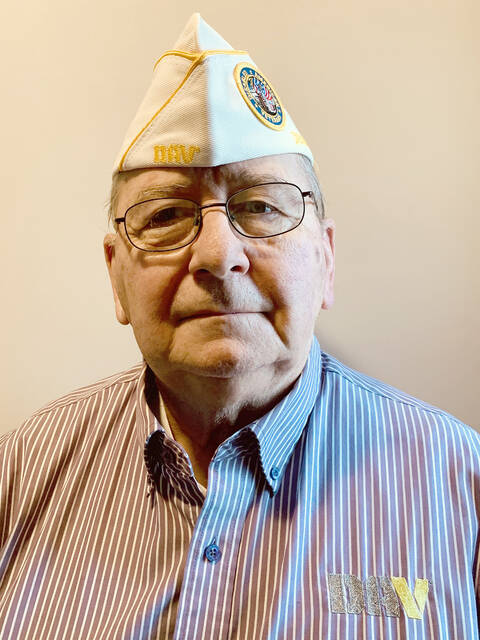In 2023, during the 118th Congressional Session, the Major Richard Star Act was introduced. This bill would give medically retired service members full access to both their military retirement pay and disability compensation from the Department of Veterans Affairs (VA).
The proposed bipartisan legislation in 2023 had 326 Representatives as cosponsors and 70 Senators as cosponsors of the bill. The bill was not brought up for a vote by the Speaker of the House of Representatives and consequently it was discarded.
The 119th Congressional Session was started in January of 2025. Senate Bill 1032 (the Major Richard Star Act) was introduced on March 13, 2025 and already 43 Senators are cosponsors of this bipartisan legislation.
On March 14, 2025, H.R. 2102 was introduced and 205 Representatives are cosponsoring the bill. There are 82 Republicans and 123 Democrats supporting passage, as of March 26, 2025.
The situation that the Major Richard Star Act would address is very simple.
Medically retired service members, with fewer than 20 years in uniform, who receive retirement from the Department of Defense (DoD), and have a VA disability rating of less than fifty (50%) percent have their pay reduced by a dollar for every dollar they receive from the VA.
The passage of the Major Richard Star Act would eliminate that “offset”, allowing what is known as “concurrent receipt” for these former service members.
This “offset”, established by a 2004 federal law, unfairly penalizes those forced into early retirement due to injuries sustained while serving. Veteran advocates have called this a deep injustice, noting that veterans who complete a full career do not face this financial penalty.
In 2022, the Congressional Budget Office (CBO) estimated that the average “offset”, or direct loss, experienced by these veterans was $1,900 per month. This bill, if passed, would provide approximately 50,000 veterans full retirement pay and their earned disability benefits.
Major Richard Star was born in Garfield Heights, Ohio, and enlisted in 1988 in the U.S. Army, with deployments during Operation Desert Shield and Desert Storm. He later had deployments in Afghanistan and Iraq.
He was an enlisted combat engineer involved in many high-risk operations, including clearing improvised explosive devices. In 2004, he received a Direct Commission as a Second Lieutenant in the Engineer Corps.
After nearly 19 years of military service, his military career was cut short by a Terminal Stage 4 Metastatic Lung Cancer diagnosis, which doctors eventually linked to his time in combat zones.
He was classified as a “Chapter 61 retiree,” a servicemember who is forced to medically retire from injury on duty.
Forced to retire just short of 20 years of military service, Major Star was denied “concurrent receipt” of his retirement and disability benefits, a financial burden he fought to change up until his eventual passing on February 13, 2021.
“This measure (S. 1032) corrects one of the deepest injustices in our present veterans’ disability system,” bill cosponsor Sen. Richard Blumenthal said “It is unacceptable that tens of thousands of combat-injured veterans are denied their full military benefits they earned.”
“Disabled military retirees should be paid for years of honorable service and their service-connected injuries, many of which are caused by combat,” said Disabled American Veterans (DAV) National Legislative Director Joy Ilem. “This is a long standing injustice we need to fix and the DAV looks forward to working with congress to make the Major Richard Star Act law.”
“Retirement pay and disability compensation are separate benefits earned for different reasons. Congress continues to wrongly treat their “concurrent receipt” as double dipping,” Veterans of Foreign Wars (VFW) National Commander Al Lipphardt said. “It’s time to correct this injustice for our military retirees.”
Senator Rick Scott, said the proposal ensures that veterans who have made sacrifices have access to their complete benefits.
“This legislation makes a critical change to treat our veterans fairly and support our nation’s heroes. I urge my colleagues to support its quick passage,” concluded Senator Scott.
AMVETS National Commander Horace Johnson said the bill must be passed out of fairness. “Far too long, veterans and their families have been told to wait while billions are wasted,” National Commander Johnson said on February 25, 2025.
Nearly four (4) dozen veterans service organizations (VSOs) have voiced support for the S. 1032 and H.R. 2102 bills, and several VSOs have made it one of their top legislative priorities this year.
My Opinion: Major Richard Star was a “Buckeye” growing up in Garfield Heights, Ohio. We both served in Engineer Battalions. He served in the 391st Engineer Battalion while I served in the 983rd Engineer Battalion. He received a Direct Commission in 2004 and I received mine in 1971.
Our military tours may have overlapped from 1988 to 1999. Unfortunately, I never had the opportunity to meet or serve with him. However, I believe that he would tell me that military retirement pay and service-connected disability compensation are two completely different benefits earned by veterans. One does not diminish the merits of the other.
I feel that it is my responsibility to pick up the baton that Major Star passed to me and get these bills passed in the House and Senate during the 119th Congressional Session.
Currently, only Representatives Joyce Beatty; Shontel Brown; Greg Landsman; Max Miller; and Michael Turner have cosponsored H.R. 2102.
I applaud them for their actions. Neither Ohio Senators have joined with the forty-three (43) senators that have cosponsored Senate Bill 1032.
John Plahovinsak is a retired 32-year Army veteran who served from 1967 to 1999. He is the Disabled American Veterans (DAV) Department of Ohio’s Hospital Chairman and can be reached at: plahovinsak@msn.com.
Subscribe to The Clermont Sun today!
https://www.clermontsun.com/subscribe

